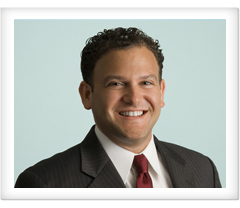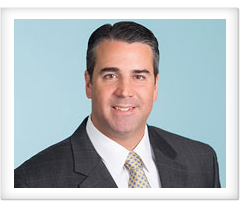|
Recent Trends and Developments in Employment, Labor & Benefits Law
Employment Matters Monthly
November 2014
Through our Employment Matters blog, we aim to share noteworthy information about matters relating to employers’ complex human resource and employment law issues. In October, the attorneys from our Employment, Labor & Benefits Practice blogged about wage and hour laws, post-employment covenants, severance agreements, the Affordable Care Act’s employer shared responsibility rules, court decisions that may impact HR departments, and more. In this e-mail, we’ve gathered together the blog posts and other information we shared for you.
If you have any questions or would like to suggest a blog post topic, please contact us or one of our team’s attorneys.
You can subscribe to our Employment Matters blog here.
 

Written by Gauri Punjabi
October 31, 2014
The U.S. Equal Employment Opportunity Commission is taking a hard look at employers who implement employee wellness programs that condition eligibility for benefits on participation in such programs. In the past few months, the EEOC sued three employers claiming that their wellness programs violated the Americans with Disabilities Act.
Continue Reading …
Written by George Patterson
October 30, 2014
A Federal court in New York recently provided some pleading parameters for employers for claims of tortious interference with business relations.
Continue Reading …
Written by Daniel Long
October 24, 2014
The latest casualty to post-employment covenants came at the hands of a Connecticut trial court, which struck down a non-solicitation agreement under New York law as reaching beyond the legitimate business interests that deserve protection.
Continue Reading …
Written by Daniel Long
October 22, 2014
Last month, we reported that an Illinois district court judge threw out the EEOC's controversial lawsuit against CVS seeking to invalidate its severance agreements. The judge there did so and promised to follow up with a written opinion. That opinion has now arrived, but it's not the one that we hoped for. Rather than address whether CVS's standard severance agreement violated its employees' rights under Title VII, Judge Darrah focused solely on certain procedural shortcomings; namely, that the EEOC had failed to engage in any conciliation prior to bringing the lawsuit.
Continue Reading …
Written by David Katz
October 22, 2014
A recent non-compete case out of a New York County court offers employers valuable drafting tips on non-compete and non-solicitation provisions.
Continue Reading …
Written by Jennifer Rubin
October 17, 2014
A federal district court in Washington has confirmed that an employer's relationship with the cows that its employees serviced is insufficient to establish a legitimate protectable interest to enforce a non-compete.
Yes, the court's decision in Genex Cooperative, Inc. v. Contreras not only confirmed that bovine inseminators were free to solicit their prior clients (and cows), but the case provides some good reminders about drafting enforceable non-competes.
The case involved three bovine inseminators who, unhappy with their wages and working conditions (which included the failure to adhere to state minimum wage laws), quit their jobs with Genex and, the next day joined its competitor CRV USA — who immediately put them to work inseminating the cows of Genex customers.
Continue Reading …
Written by Tyrone P. Thomas
October 10, 2014
If you are a D.C. employer, temporary staffing agency, contractor, or subcontractor, you have yet another wage and hour law to contend with: The Wage Theft Prevention Amendment Act of 2014. Among other things, the law introduces new penalties for failure to pay earned wages and exposes to liability related entities that have no relationship to the employee. Here are the highlights:
Continue Reading …
Written by Michael Arnold
October 9, 2014
The New York City Council's Committee on Civil Rights recently held a hearing on a bill that would amend the New York City Human Rights Law to prohibit employers from basing an employment decision on the consumer credit history of an applicant or employee.
Continue Reading …
Written by Gauri Punjabi
October 7, 2014
As one employee recently learned, a supervisor's favoritism toward another employee because of a romantic relationship does not equate to unlawful discrimination. Additionally, a complaint of said favoritism cannot serve as the basis for an actionable retaliation claim.
In Clark v. Cache Valley Electric Company, Kenyon Brady Clark, a project manager, claimed that his supervisor discriminated against him by favoring another female project manager with respect to bonuses, job assignments, and other working conditions, because the supervisor had been, or was, romantically involved with the other project manager.
Continue Reading …
Written by Jennifer B. Rubin
October 7, 2014
In a pair of recent decisions, two courts interpreting California's quirky non-compete law confirm that employee non-recruitment covenants in California are enforceable — but only if those covenants are necessary to prevent employee raiding.
Most states approach non-recruitment covenants through the "reasonableness" lens — if the enforcement of a non-recruitment covenant is necessary to protect an employer's legitimate business interest in protecting the stability of its workforce and business, then chances are the covenant will be enforced.
Continue Reading …
Written by Jessica Catlow
October 2, 2014
A recent decision from a Georgia federal district court concerning post-employment non-compete agreements reached two notable conclusions of which employers should take note:
- Restricting a former employee's access to customers could result in lost opportunities for the employee which are difficult, if not impossible, to quantify; and
- Loss of business due to free and fair competition is not a "harm"; violation of legal rules designed to promote competition however, is a harm.
Continue Reading …
Written by Patricia Moran
October 1, 2014
The concepts of "hours of service" and "full time" loom large in the Affordable Care Act's "employer shared responsibility" mandate (also known as the "employer mandate" or "pay or play mandate" and which we discussed in various posts here). An employee who works 30 "hours of service" per week is considered to be "full time" under the mandate. Whether an employer is subject to the employer mandate at all depends on the number of its "full time" and "full time equivalent" employees; and whether the employer might be liable for a penalty depends on whether it makes an ACA-compliant offer of coverage to each of its "full time" employees.
But what happens when "hours of service" are not easily captured as is the case with adjunct faculty members?
Continue Reading …
Written by Robert Sheridan
October 1, 2014
Recently, Allison Grande of Law360 reported on the warnings representatives from the FTC and EEOC provided to employers about using big data in the workplace at a panel hosted by the FTC. This post briefly explores those warnings.
Continue Reading …

Alden Bianchi, Chair of the our Employee Benefits & Executive Compensation Practice, provides a weekly installment on the Affordable Care Act as he counts down to the January 1, 2015 ACA pay-or-play deadline). Below are the posts from October. Access all of Alden’s posts here.
Written by Alden J. Bianchi and Edward A. Lenz
October 27, 2014
Applicable large employers faced with the prospect of complying with the Affordable Care Act's employer shared responsibility rules must grapple with and understand what it means to make an offer of minimum essential coverage under an eligible employer-sponsored [group health] plan to their full-time employees. Final regulations implementing these rules determine an individual's status as an "employee" by applying the "common law" standard, the contours of which were examined in a previous post. Identifying an employer's common law employees in a two-party arrangement is a simple matter. But this is not always the case in three-party arrangements (i.e., those in which workers are hired from or through commercial staffing firms or professional employer organizations). Three-party arrangements invite the question—whose employee is it? Where the Act's employer shared responsibility rules are concerned, the answer to that question tells us which entity must make the requisite offer of coverage when assessing exposure for assessable payments.
The final regulations provide a special rule governing outsourced employees or "offers of coverage on behalf of other entities." This rule is welcome to be sure, but it also appears to be widely misunderstood, systematically over-utilized, and in a few cases subject to interpretations that (seem to us, anyway) stray pretty far from the text.
Continue Reading …
Written by Alden J. Bianchi
October 22, 2014
Under the Affordable Care Act's employer shared responsibility rules, applicable large employers (those with 50 or more full-time and full-time equivalent employees on business days during the preceding calendar year) incur exposure for assessable payments under Internal Revenue Code § 4980H when an applicable premium tax credit or cost-sharing reduction is allowed or paid for one or more low- or moderate-income full-time employees who have been certified to the employer as qualifying for an advance premium tax credit under Code § 36B. The final Code § 4980H regulations refer to this certification as a "Section 1411 Certification," which is a reference to Act § 1411(a). This provision gives the Department of Health and Human Services ("HHS") the authority to determine whether individuals are eligible to enroll in qualified health plans through a public exchange and whether they are eligible for a premium tax credit.
Continue Reading …
Written by Alden J. Bianchi
October 14, 2014
Under the Affordable Care Act's rules governing employer shared responsibility — which are codified in Internal Revenue Code § 4980H — where an applicable large employer makes an offer of group health plan coverage that is both "affordable" and provides "minimum value" to substantially all of its full-time employees, the employer is not liable for assessable payments under Code § 4980H. (Final regulations under Code § 4980H are available here; and a set of Questions and Answers prepared by the IRS describing the final rules can be accessed here.)
In an effort to drive down the cost of complying with these rules, certain applicable large employers — principally those in industries in which coverage was not previously offered across-the-board to most, if not all, full-time employees — have sought less expensive ways to offer coverage that is both "affordable" and provides "minimum value." In an earlier post we described some of the emerging compliance strategies, which included the reference pricing models and "MVP arrangements" that some employers were considering.
Continue Reading …
Written by Alden J. Bianchi
October 6, 2014
Final regulations implementing the Affordable Care Act's employer shared responsibility rules furnish employers with two alternative methods — the monthly measurement method and the look-back measurement method — for identifying full-time employees. (The Act's employer shared responsibility standards are codified in Internal Revenue Code § 4980H; the final regulations can be accessed here.) For each method, the final regulations provide standards governing breaks-in-service that are unique to Code section 4980H. For employers choosing to apply the look-back measurement method, the principle purpose of the break-in-services rules is to determine whether an employee, upon his or her return from a service break, may be treated as a "new employee" or a "continuing employee." The employee's status as a new or continuing employee governs when the employee must be offered group health plan coverage without exposing the employer to assessable payments under the Act's employer shared responsibility standards.
Continue Reading …

October 28, 2014
My colleague, Jen Rubin, has posted on LinkedIn an interesting article on the kind of information that an ex-employee may — or may not — be free to use for the benefit of a new employer.
Continue Reading …
October 24, 2014
My colleague Rob Sheridan was quoted in an SHRM article entitled Big Data Only as Good as Data In, in which he comments on the HR and legal implications of both internal and external use of big data by employers. The article focuses on the new trend of big data use in recruiting and hiring top talent, and its meaning in regards to the Fair Credit Reporting Act.
Continue Reading …
October 15, 2014
My colleague Mitch Danzig was quoted in a SHRM article entitled Employees’ Use of Sharing Economy Poses Risks in which he comments on the risk employers face when requiring employees to use shared economy services such as Uber or Airbnb. The article focuses on how employers should tackle the booming sharing economy in regards to business travel, as well as the sharing industry’s future legal landscape.
Continue Reading …
October 15, 2014
My colleague Jim Nicholas was quoted in an HR Morning article entitled High Court’s Decision Could End Up Costing Employers Big in which he comments on Integrity Staffing Solutions, Inc. v. Jesse Busk, et al., a case pending in the Supreme Court on compensable vs non-compensable activities for employees. The article focuses on different facets of the issue, the justices’ viewpoints about the case, and its possible implications for all employers.
Continue Reading …
October 1, 2014
My colleague Tyrone Thomas was quoted in a SHRM article entitled Confront Employees Who Perpetrate Domestic Violence in which he comments on ways employers can investigate an employee’s alleged off-duty, off-site domestic violence. The article focuses on employers’ courses of action when they suspect an employee is committing domestic violence.
Continue Reading …

Report of Prohibited Personnel Practice
U.S. Office of Special Counsel, OSC File No. MA-11-3846 (Jane Doe) (finding that the Dep’t of Army discriminated against a civilian employee after she informed them of a gender transition)
When the Guy Making Your Sandwich Has a Noncompete Clause
by Neil Irwin (The Upshot, Oct. 14, 2014)
Application of the Fair Labor Standards Act to Domestic Service; Announcement of Time-Limited Non-Enforcement Policy
Wage & Hour Division Policy Statement (Oct. 9, 2014)
Santiago v. Department of Transportation
12 Civ. 132 (JBA) (D. Conn. Sept. 25, 2014) (employee may use FMLA intermittent leave entitlement to essentially change a position by eliminating an overtime requirement)

“… there’s no need for employers to panic. No Ebola pandemic has been or is likely to be declared. Nevertheless, all employers, even small business owners, have a legal obligation to maintain a safe workplace, and taking reasonable steps to guard against the risk of dangerous infectious diseases in the workplace is part of that obligation. At the same time, various laws require employers to respect employee privacy, often restricting employers from asking about medical conditions and mandating confidentiality of medical information. Balancing obligations under these various laws is critical.”
from “Small business advice: How to prepare your company for an outbreak like Ebola,” by Katherine Parker, Washington Post “On Small Business” guest blogger (Oct. 21, 2014).
“The Court holds that the rejected offer of judgment moots the lawsuit only when the district court has entered that judgment—or, to put it differently, that the judgment moots the lawsuit, not the offer. Consequently, when (as in this case) new collective action plaintiffs join the lawsuit before entry of judgment, the case is not moot. Accordingly, the Court denies the [Defendants’ motion to dismiss].”
Judge Raymond J. Dearie in Anjum v. J.C. Penny (E.D.N.Y. Oct. 9, 2014), refusing to find that a Rule 68 Offer of Judgment by itself moots a collective action lawsuit.
“Today I’m signing a sweeping expansion of the city’s living wage standard. It’s time to go farther. Effective immediately, we will raise wages through the living wage standard to $13.13 per hour.” Mayor de Blasio in signing an Executive Order expanding the reach of the City’s living wage law (Sept. 30, 2014).
“We are months away from a proposed regulation.”
U.S. Solicitor of Labor M. Patricia Smith confirming that the DOL will not release its proposed revisions to the overtime exemption regulations by November 2014.

Learn more about Employment Matters blog and its contributors here.
|














